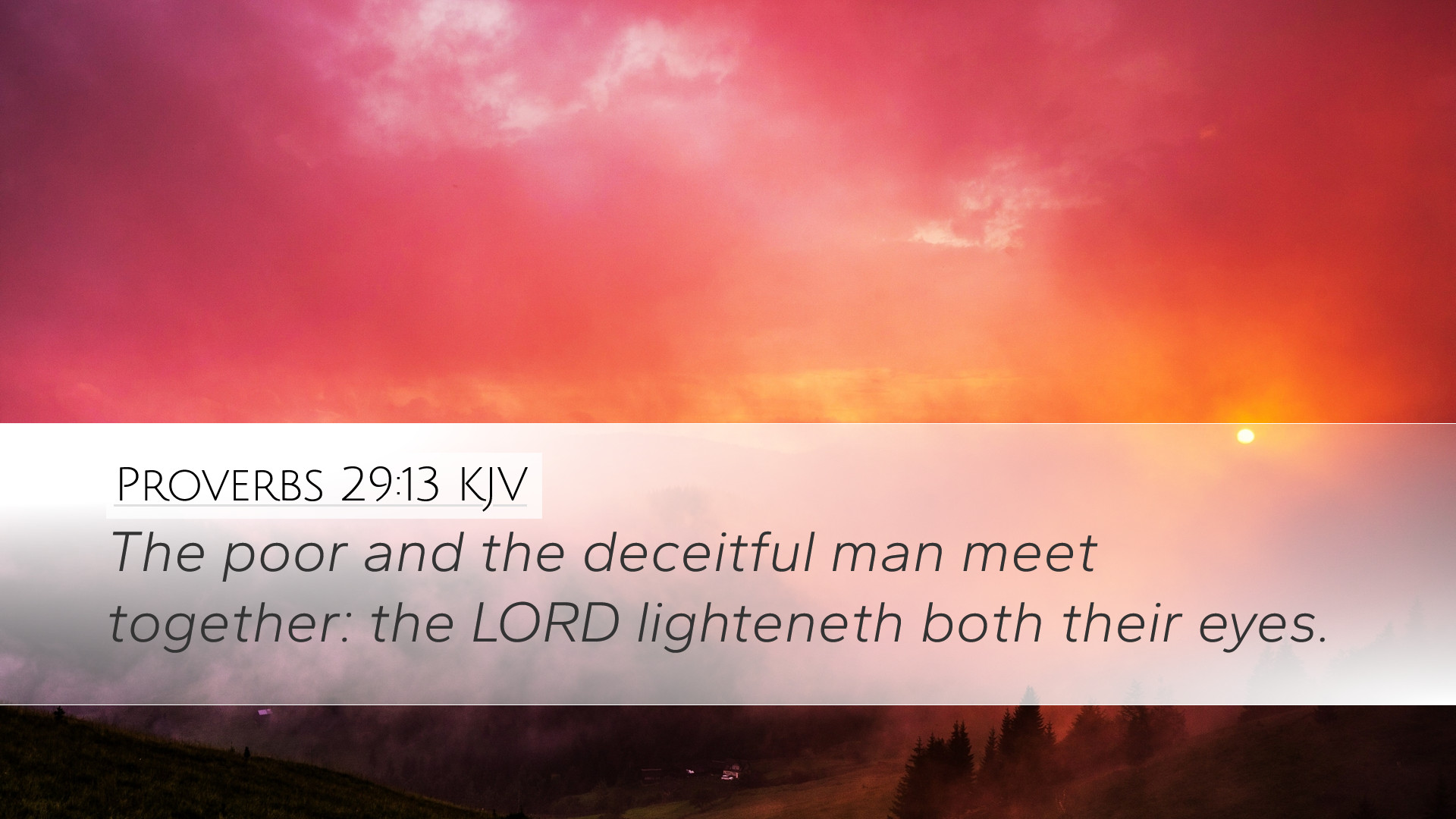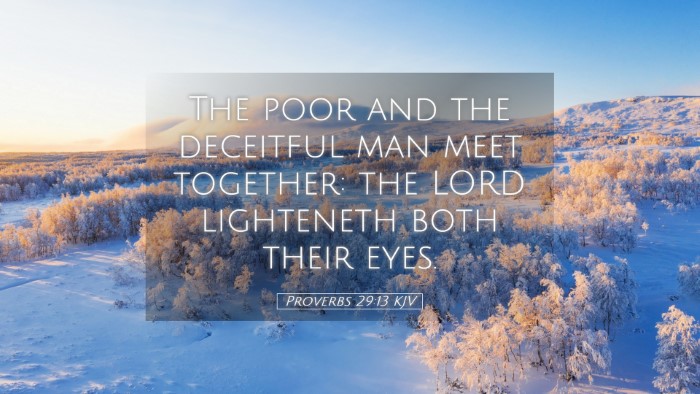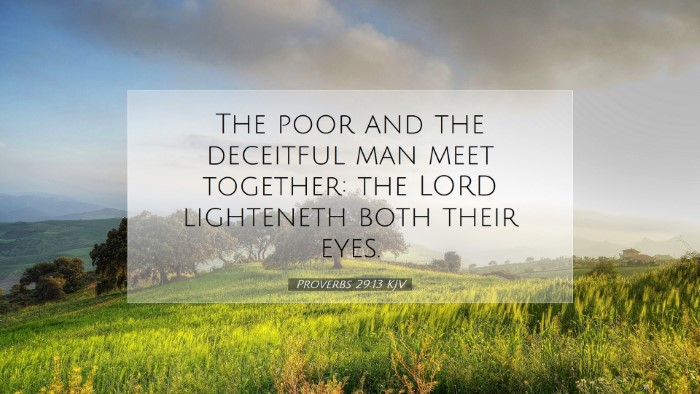Commentary on Proverbs 29:13
Proverbs 29:13 states: "The poor and the deceitful man meet together: the LORD lighteneth both their eyes." This verse presents a profound insight into the nature of humanity, social justice, and divine provision.
Contextual Overview
This verse is nestled within the broader context of Proverbs, a book filled with wisdom literature meant to instruct and guide readers in righteous living. The juxtaposition of the poor and the deceitful man invites a closer examination of social dynamics and moral character in the eyes of God.
Exegesis of the Verse
The phrase "the poor and the deceitful man meet together" indicates a common ground that exists between two seemingly opposing figures in society. The poor often face oppression and injustice, while the deceitful man may thrive by taking advantage of others. The divine light, however, is promised to both, reflecting God's impartiality and His desire for justice.
Insights from Matthew Henry
Matthew Henry remarks that this verse illustrates God's omnipotence in addressing the needs of different individuals, regardless of their social status. He emphasizes that both the poor and the deceitful, while representative of different moral standings, still come before God.
- Divine Illumination: Henry emphasizes that the "lightening of their eyes" signifies understanding and perception that come from God, illuminating the hearts and minds of both parties.
- Equality Before God: This divine light is a reminder that, in God’s eyes, both the impoverished and the corrupt are equally deserving of His grace.
Insights from Albert Barnes
Albert Barnes offers a deep dive into the social implications of the text, analyzing the interactions between the rich and poor, the honest and dishonest. He notes that those in positions of wealth and power may engage with the downcast, but often with ulterior motives.
- Human Relationships: Barnes suggests this meeting signifies a confrontation between honesty and deceit. The poor are often regarded with pity, while the deceitful man embodies unscrupulous behavior.
- The Role of God: Barnes insists that it is only through God’s intervention that true justice and understanding can come about; hence, the importance of divine light for both characters.
Insights from Adam Clarke
Adam Clarke further elaborates on the meaning of "both their eyes" as a metaphor for moral and spiritual sight, vital for ethical living. Clarke emphasizes God's role in providing insight regardless of one's social standing.
- Moral Awakening: Clarke states that both the poor and the deceitful man can experience enlightenment, suggesting that redemption is available even for the morally bankrupt.
- God's Justice: The notion that God grants light to both implies His overarching plan for justice, indicating that He sees beyond socioeconomic status and focuses on the heart's condition.
Theological Implications
This verse presents several theological implications concerning God’s character, human nature, and the nature of justice:
- God's Impartiaility: The idea that God brings light to both ends of the human spectrum highlights His unifying role, promoting the belief that all individuals are equally valued.
- Human Condition: It reflects on the complexities of human morality, indicating that deceit can exist in various forms, not solely in the wealthy class but also through the networking of power dynamics.
- Redemption Possibility: The phrase suggests that regardless of one's social standing or moral failures, redemption and enlightenment are offered freely by God.
Practical Applications
For pastors, students, and scholars, the implications of Proverbs 29:13 challenge the church and society to address inequalities from a biblical perspective, promoting understanding and compassion across social divides.
- Social Justice Advocacy: Believers are called to advocate for justice and equality, recognizing that the poor and the deceitful can both receive God’s light.
- Encouragement of Compassion: The church should encourage compassion toward both the impoverished and morally lost individuals, recognizing their need for God’s truth.
- Moral Self-Examination: This passage encourages self-examination of one’s heart and intentions, promoting integrity and moral living.
Conclusion
In summary, Proverbs 29:13 encapsulates the essence of divine providence in the interplay of socio-economic and moral realities. Through the convergence of the poor and the deceitful, God emphasizes His capacity to enlighten all who seek Him, regardless of their standing within society. In a world rife with inequality, this proverb serves as a clarion call for Christians to embody the light of Christ and pursue justice with understanding, compassion, and humility.


